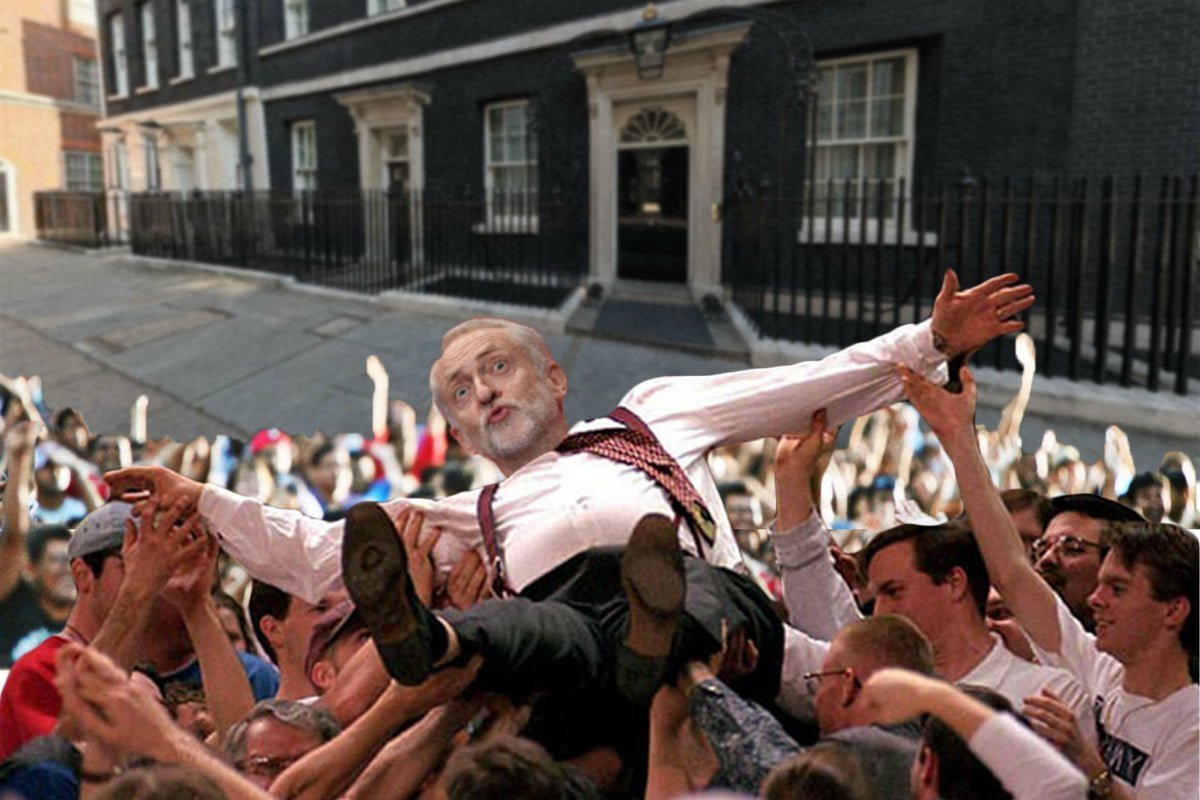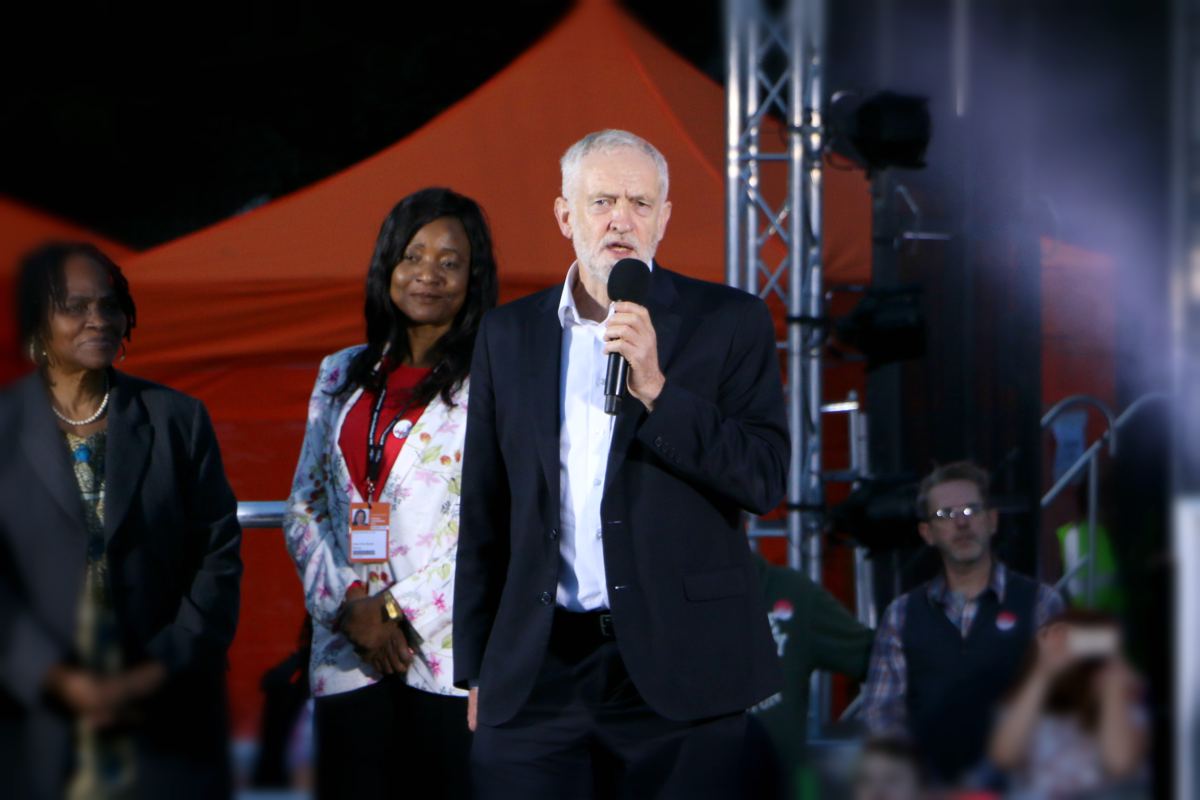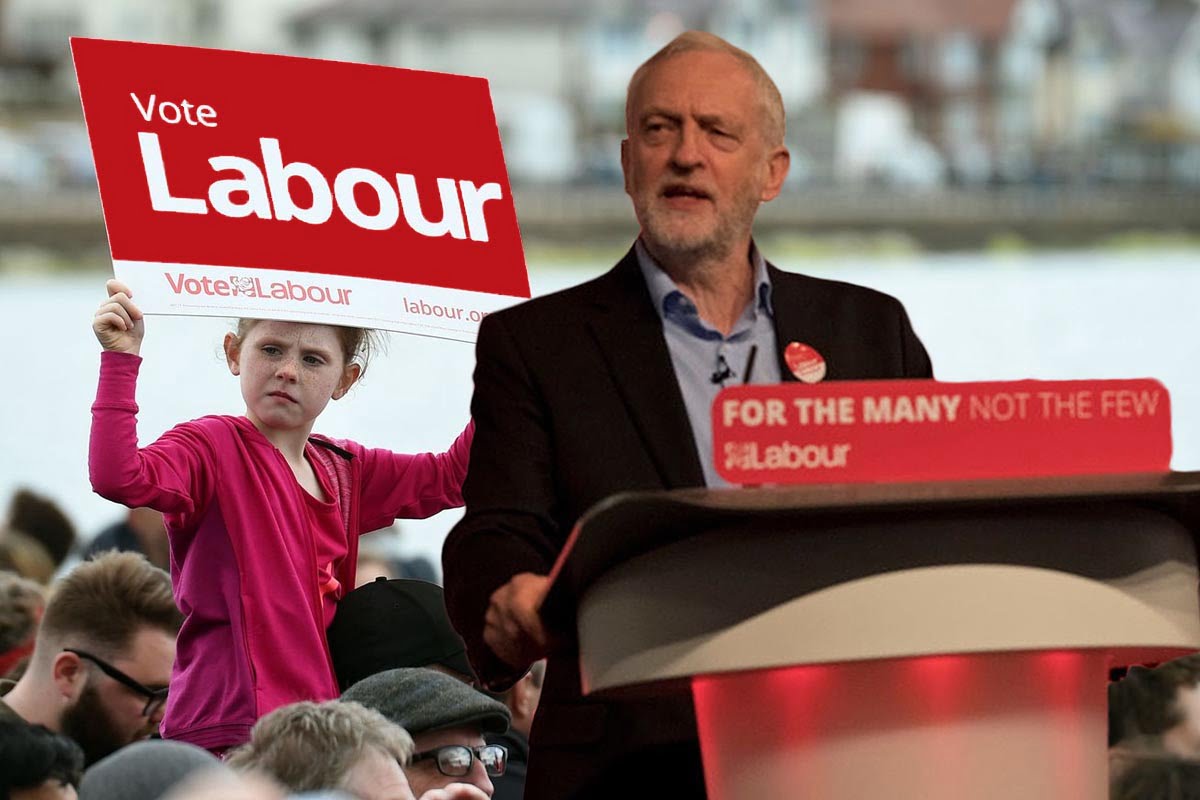Daniel Morley reviews the recent BBC Two documentary highlighting the dramatic transformation that has taken place inside the Labour Party in the past six months. As a result of the shock general election result and the rise of the mass movement around Corbyn, the Blairites are now completely demoralised and sidelined.
Last week, BBC Two screened a highly entertaining documentary about Labour’s campaign at the last general election. The title, “Labour – the summer that changed everything”, is very well chosen: the early parts of the documentary, from the beginning of the campaign, seem like a lifetime ago, or even from a different reality entirely.
Indeed, the title might just as well be applied to the film itself. It is clear from the sneering Blairite tone of the narration – and from the questions asked of the right-wing Labour MPs before the documentary makers knew how the election would turn out – that the filmmakers had set out to produce a documentary charting (what they suspected would be) the glorious end of Corbyn’s leadership in real time.
The producers and interviewees were confident that Labour would be drubbed on 8th June. But evidently the events themselves transformed the documentary into something else entirely.
Blairite hubris
The film follows four Labour MPs – all essentially Blairites or prominently anti-Corbyn: Stephen Kinnock, MP for Aberavon and son of former Labour leader, Neil Kinnock; Lucy Powell, MP for Manchester Central; Ruth Cadbury, MP for Brentford; and Sarah Champion, MP for Rotherham.
Presumably these four right-wingers agreed to be filmed, and decided to make such candid and aggressive comments about Corbyn, because they assumed this film would chart their heroic labours (no pun intended) on the doorstep as they struggled with the burden of Corbyn. Their glorious and entirely deserved ascension to power after the Labour leader was forced to resign would then be documented for all to see.
This is particularly obvious in Stephen Kinnock’s smug statement near the beginning. As he drove to do some canvassing in slightly menacing dark sunglasses, he said something that would have sounded even more menacing were it not for the tragi-comic character these remarks have taken on with hindsight,
“If a party fails, after seven years in opposition, to make good forward progress at an election, then the party leader has to take responsibility for that. On the 9th June, Jeremy will have to take a long hard look in the mirror. It will be a hard personal choice for him, I’m sure. That’s something that only Jeremy can do.”
We also see Ruth Cadbury absolutely floundering in the face of hostility on the streets. When one person tells her he doesn’t like Corbyn, instead of defending him, or offering an argument for the Labour manifesto, she pathetically gives in with a mumbled assertion that he should vote for her, as if she wins she can help topple Corbyn.
It is clear throughout the programme that these MPs are total mediocrities incapable of campaigning with passion; people for whom the idea of arguing with conviction or relating to ordinary people’s problems are utterly alien concepts.
The masses vs the MPs
 The programme mostly follows these MPs in their bumbling efforts. But as we get closer to election day there are some clips of Corbyn himself campaigning, with thousands of people coming out to support him, in a hint of the turning of the tide.
The programme mostly follows these MPs in their bumbling efforts. But as we get closer to election day there are some clips of Corbyn himself campaigning, with thousands of people coming out to support him, in a hint of the turning of the tide.
The contrast could not be greater: unlike the campaigns of the right-wing Labour MPs, Corbyn’s campaign events are mass meetings and rallies, brimming with confidence that comes from having a clear, bold programme.
The members of the public who’ve come to see the Labour leader are – in contrast to the media’s slanders about an army of falafel-eating wealthy Islingtonites – thoroughly working class people and instantly more likeable and interesting than the slick professional politicians we’ve been following up to this point.
In predictable and customary style, the narrator can only bring himself to admit the obvious success of Corbyn’s campaign by way of a patronising slur that his meetings are really “congregations of the faithful”.
But this is just what a real mass movement looks like: unforced enthusiasm, which is not just for Corbyn, but for the movement itself – a sense amongst those there that they’re part of something rare and special. So foreign to mass movements are these journalists that they can only understand them as a kind of irrational religious fervour.
At one event, they ask Sarah Champion, one of the featured MPs, what it felt like at these huge rallies. Instead of talking about how inspiring it is to see a movement of ordinary people, or how they are going to change society with their manifesto, all she can think of to say is how she loves the ego boost of basking in the reflected glory of Corbyn.
Staring into the abyss
The film of course ends with footage of the stunning election night and its aftermath. Once again, Stephen Kinnock is shown to be astonishingly stupid as he is berated by his wife ( Helle Thorning-Schmidt, the former Danish prime minister) for doing an interview for no reason (Helle: “why are you doing this?”; Stephen: “I don’t know”).
We get to see into Kinnock Jnr.’s soul as he stares into the abyss, realising his worst nightmare has come true: Labour haven’t been annihilated! Corbyn will stay on as leader! What a disaster!
Later on he gives the game away as to his feelings when he says, regarding the election, “my wife’s favourite saying is that whatever doesn’t kill you makes you stronger”. In other words, he feels Labour’s enormously successful campaign that has crippled the Tory government almost killed him!
We are also treated to an interview with Ruth Cadbury’s PR agent Fiona, who openly says that she “feels very conflicted” by Labour’s election results. “What I’m dreading is the triumphalism…my expectation is they [Corbyn’s supporters] are not going to be graceful winners. I don’t think it’s gonna be pretty.”
This right-wing advisor presumably had no problem with the wholesale expulsions of Corbyn supporters, or the attempt to rig the second leadership election against him, however.
Betrayers beware
 Both Stephen Kinnock and Lucy Powell struggle to hide their fear of the consequences of their previous betrayals of Corbyn. Powell bemoans the takeover of CLPs by Momentum activists, and thinks the party needs everyone together, right and left, to be successful (although again, there was apparently no problem with excluding the left when the right was in power).
Both Stephen Kinnock and Lucy Powell struggle to hide their fear of the consequences of their previous betrayals of Corbyn. Powell bemoans the takeover of CLPs by Momentum activists, and thinks the party needs everyone together, right and left, to be successful (although again, there was apparently no problem with excluding the left when the right was in power).
Kinnock cuts almost as pathetic a figure on the Brighton beach as his dad did before him, when he appeals to the new activists that “they need me just as I need them”. Only it is obvious that we don’t need him and his like. He comes across like a treacherous underling in Game of Thrones, whose treachery, having been thwarted and exposed, leads him to beg for his life from his new masters.
These MPs will regret having participated so vainly and shortsightedly in this documentary. But we are all the better off for it, because it has shown just how lightweight they are, and how little we have to fear in doing without them.






